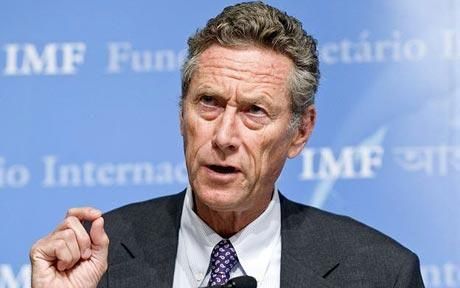IMF.org
End-of-Mission press releases include statements of IMF staff teams that convey preliminary findings after a visit to a country. The views expressed in this statement are those of the IMF staff and do not necessarily represent the views of the IMF’s Executive Board. Based on the preliminary findings of this mission, staff will prepare a report that, subject to management approval, will be presented to the IMF’s Executive Board for discussion and decision.
An International Monetary Fund (IMF) team, led by Nicolas Blancher, visited Morocco from October 21 to November 4, 2015 to conduct discussions with the Moroccan authorities on the 2015 Article IV consultation, as well as on the third review of economic performance under the Precautionary and Liquidity Line (PLL) arrangement approved in July 2014. The discussions focused on increasing the resilience and the potential of the Moroccan economy.
At the conclusion of the visit, Mr. Blancher issued the following statement:
“Prudent economic policies and sustained structural reforms have served Morocco well over the last few years. Growth is recovering and should reach 4.7 percent in 2015, due in part to a good agricultural season. However, the recovery in non-agricultural activity remains sluggish, because the European recovery is slower than expected.
Inflation is low and credit has remained subdued. The current account deficit narrowed further in 2015 to a projected -1.5 percent of GDP, and international reserves improved further to 6.5 month of imports. This performance reflects in part the reduced fuel and food import bill, and sustained growth in automobile exports and remittances. The fiscal deficit has continued to improve in recent years due to measures taken by the government, in particular subsidy reforms.
Poverty rates, unemployment, and inequality have declined over the past decade, but much remains to be done to promote a more inclusive growth. In particular, continued efforts are needed to reduce social and regional disparities, increase female labor force participation, and improve the quality of education and medical coverage.
“Growth is expected to slow to 3 percent in 2016, as agricultural activity returns to normal, and should strengthen gradually in the medium term to close to 5 percent. However, risks from lower growth in advanced and emerging countries, an increase in world energy prices resulting from geopolitical tensions in the region, and a surge in global financial market volatility remain substantial.
“Fiscal developments through end September have been positive and in line with the 2015 deficit target of 4.3 percent of GDP in 2015. The efforts to further strengthen public finances, as reflected in the 2016 draft budget that targets a deficit of 3.5 percent of GDP, are welcome. In the medium term, fiscal reforms should continue to increase the economy’s resilience to shocks and to provide more room for investment in infrastructure, health, education, and social protection, which are crucial to raise the economy’s potential and inclusiveness.
In that respect, the progress achieved in reforming the subsidy system and in strengthening the fiscal framework is commendable. Looking ahead, a priority is to make the tax system more efficient and equitable. Reforming the pension system is also urgent to secure its viability. These reforms would help place public debt on a downward path. Indeed, public debt remains sustainable and resilient to various shocks, but it should be reduced in order to create further fiscal space.
“On the external front, the improved current account position and robust capital flows have helped strengthen international reserves. Looking forward, efforts to improve the business environment, transparency and governance will be essential to enhance external competitiveness. We support the authorities’ efforts to improve financial inclusion and access to credit, especially for very small, small, and medium enterprises. In addition, we welcome the authorities’ intention to move to a more flexible exchange rate regime, which would facilitate the further diversification of the economy, and enhance its international integration and its capacity to absorb external shocks.
“The recent Financial Sector Assessment Program confirmed that, overall, the financial sector remains sound. Banks are well capitalized and profitable, and benefit from stable funding resources. Risks to financial stability are limited, although rising non-performing loans and concentrated exposures need to be monitored carefully. Banking supervision is effective and should continue improve. The authorities’ efforts to strengthen the financial policy framework by implementing the 2014 banking law and Basel III standards and enhancing systemic risk surveillance are welcome. The adoption of the new central bank law would further reinforce Bank-Al-Maghrib’s independence and its role in banking supervision and financial stability.
“The mission would like to thank the Moroccan authorities and all those with whom it had the opportunity to meet, including representatives of the private sector and civil society, for their cooperation and productive discussions.”
Background information:
The IMF Executive Board approved a 24-month arrangement under the Precautionary and Liquidity Line in an amount equivalent to about US$5 billion (550 percent of Morocco’s quota) in July 2014 (See Press Release No. 14/368).
IMF COMMUNICATIONS DEPARTMENT
Media Relations
E-mail: media@imf.org
Phone: 202-623-7100




